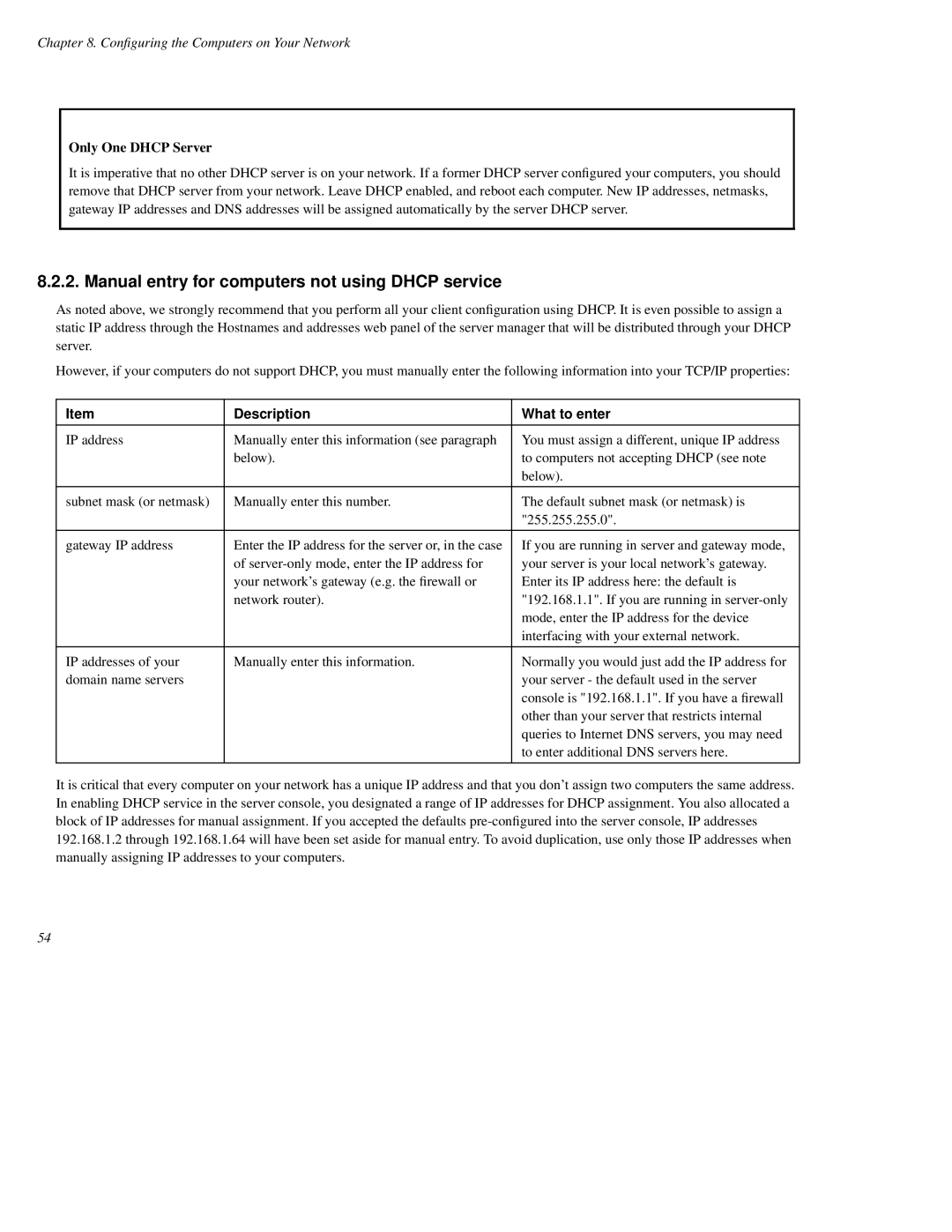
Chapter 8. Configuring the Computers on Your Network
Only One DHCP Server
It is imperative that no other DHCP server is on your network. If a former DHCP server configured your computers, you should remove that DHCP server from your network. Leave DHCP enabled, and reboot each computer. New IP addresses, netmasks, gateway IP addresses and DNS addresses will be assigned automatically by the server DHCP server.
8.2.2. Manual entry for computers not using DHCP service
As noted above, we strongly recommend that you perform all your client configuration using DHCP. It is even possible to assign a static IP address through the Hostnames and addresses web panel of the server manager that will be distributed through your DHCP server.
However, if your computers do not support DHCP, you must manually enter the following information into your TCP/IP properties:
Item | Description | What to enter |
|
|
|
IP address | Manually enter this information (see paragraph | You must assign a different, unique IP address |
| below). | to computers not accepting DHCP (see note |
|
| below). |
|
|
|
subnet mask (or netmask) | Manually enter this number. | The default subnet mask (or netmask) is |
|
| "255.255.255.0". |
|
|
|
gateway IP address | Enter the IP address for the server or, in the case | If you are running in server and gateway mode, |
| of | your server is your local network's gateway. |
| your network's gateway (e.g. the fire wall or | Enter its IP address here: the default is |
| network router). | "192.168.1.1". If you are running in |
|
| mode, enter the IP address for the device |
|
| interfacing with your external network. |
|
|
|
IP addresses of your | Manually enter this information. | Normally you would just add the IP address for |
domain name servers |
| your server - the default used in the server |
|
| console is "192.168.1.1". If you have a fire wall |
|
| other than your server that restricts internal |
|
| queries to Internet DNS servers, you may need |
|
| to enter additional DNS servers here. |
|
|
|
It is critical that every computer on your network has a unique IP address and that you don't assign two computers the same address. In enabling DHCP service in the server console, you designated a range of IP addresses for DHCP assignment. You also allocated a block of IP addresses for manual assignment. If you accepted the defaults
54
